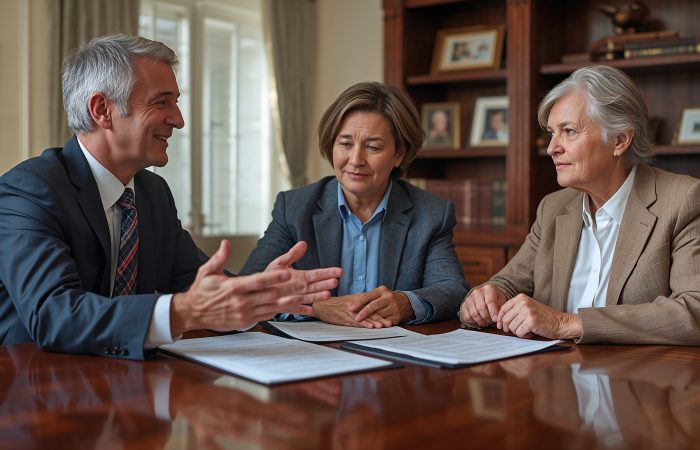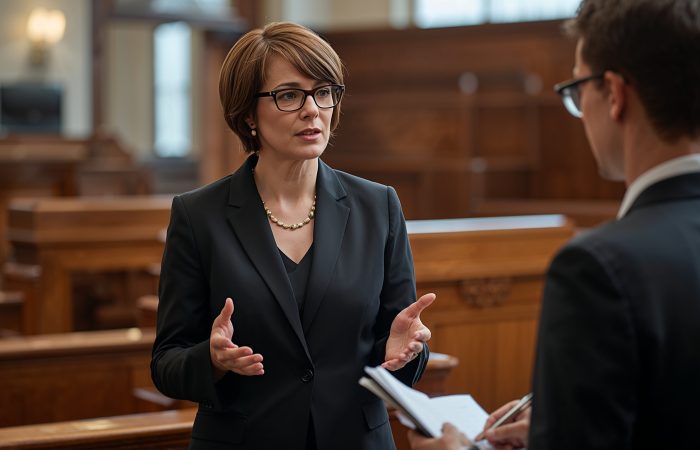Choosing the Right Divorce Lawyer: Questions to Ask in the Initial Consultation
Divorce can be one of the most emotionally and financially challenging experiences a person faces. Whether your case is amicable or highly contested, the right divorce lawyer can make all the difference in protecting your interests and achieving a fair outcome. The initial consultation with a potential attorney is your opportunity to evaluate their skills, strategy, and compatibility. Knowing the right questions to ask helps you make a confident and informed decision.
This article provides essential hiring tips for selecting a divorce lawyer, focusing on key areas such as legal strategy, fees, timeline, and communication style. By the end, you’ll know what to expect in your first meeting and how to choose the lawyer who best fits your needs.
Why Your Choice of Divorce Lawyer Matters
Your divorce lawyer will guide you through one of life’s most complex transitions. From negotiating child custody to dividing marital assets, their approach can affect not only your finances but your emotional well-being and future stability. A skilled attorney offers both legal knowledge and practical insight, helping you make decisions that support long-term peace and fairness.
Choosing the wrong lawyer, on the other hand, can lead to poor communication, unnecessary conflict, or unexpected expenses. The key is to approach your selection process with clarity and preparation.
Step 1: Do Your Homework Before the Consultation
Before scheduling an appointment, research potential attorneys in your area. Look for those who specialize in family law and have experience handling cases similar to yours. Read online reviews, browse their firm’s website, and check whether they are members of reputable legal associations such as the State Bar’s Family Law Section.
Once you’ve identified a few candidates, gather basic information about your case—your goals, your spouse’s attorney (if applicable), and your main concerns. Having this information ready allows the divorce lawyer to provide more accurate guidance during the initial consultation.

Step 2: Ask About Legal Strategy
Every lawyer has their own approach to divorce cases. Some focus on negotiation and mediation, while others are more aggressive litigators. During your first consultation, ask how they typically handle cases like yours and whether they tailor their strategy to each client’s goals.
Key Questions to Ask About Strategy
- What approach do you take in most divorce cases—collaborative, mediation-based, or litigation?
- How do you determine the best strategy for my specific situation?
- What potential outcomes should I realistically expect?
The answers to these questions reveal not only the attorney’s experience but also their philosophy on conflict resolution. If you value cooperation and privacy, for instance, a lawyer who pushes for litigation in every case may not be the right fit.

Step 3: Discuss Fees and Billing Practices
Understanding how a lawyer charges for their services is crucial. Divorce proceedings can become expensive, and clear communication about costs helps you plan ahead. During your consultation, ask for a detailed explanation of the fee structure, including hourly rates, retainers, and potential additional costs such as court fees or expert witnesses.
Important Fee-Related Questions
- What is your hourly rate, and how is time billed?
- Do you require an upfront retainer, and how is it applied?
- Can you provide an estimate of the total cost for my case?
- What factors could increase or decrease the overall expense?
While it’s tempting to choose the most affordable option, remember that experience and efficiency often justify higher rates. A knowledgeable divorce lawyer may handle your case more effectively, saving you time and stress in the long run.
Step 4: Understand the Expected Timeline
Every divorce case unfolds at its own pace, depending on complexity, cooperation between spouses, and court schedules. During the consultation, ask the attorney to outline a general timeline and explain what factors could affect it. Knowing what to expect helps you plan your next steps and manage your expectations.
Ask these questions to get a clearer picture of the process:
- How long do most cases like mine take to resolve?
- What are the typical stages of the divorce process?
- Are there ways to speed up or simplify the process?
An experienced divorce lawyer will provide an honest assessment rather than overpromise quick results. Realistic guidance shows professionalism and reliability.

Step 5: Evaluate Communication Style and Compatibility
Effective communication is the foundation of a strong attorney-client relationship. You need a lawyer who listens carefully, explains legal concepts clearly, and keeps you updated throughout the process. During your meeting, take note of how the attorney interacts with you. Do they seem patient, attentive, and respectful? Or are they rushed and distracted?
Questions to Assess Communication Style
- How often will we communicate about my case?
- Will I primarily speak with you or your staff?
- What’s your preferred method of communication—email, phone, or meetings?
- How quickly do you respond to client messages?
If you leave the meeting feeling confident and understood, that’s a positive sign. However, if you feel dismissed or confused, you may want to continue your search.
Step 6: Observe the Office Environment and Professionalism
The lawyer’s office can reveal much about their organization and professionalism. When you visit, note whether the environment feels structured, calm, and efficient. Friendly staff, prompt scheduling, and well-organized paperwork all indicate a firm that values its clients’ time and respect.
Professionalism extends beyond appearances. A great divorce lawyer will treat you with empathy and discretion, understanding that every client’s circumstances are deeply personal and unique.
Step 7: Review Their Experience and Track Record
Before making a final decision, ask the attorney about their experience with cases similar to yours. Have they handled high-asset divorces, child custody disputes, or mediation cases? A proven record in your specific area of concern adds confidence that they can handle any complexities that arise.
Don’t hesitate to ask for examples of past successes, keeping in mind that ethical attorneys cannot disclose confidential details. Instead, look for general insights and practical examples of how they’ve helped clients achieve favorable outcomes.
Step 8: Follow Up After the Consultation
After meeting with a few attorneys, take some time to reflect. Which lawyer made you feel most comfortable and confident? Did they clearly explain their strategy, fees, and expectations? Were they responsive to your questions?
Trust your instincts. The best divorce lawyer for you is someone who combines legal expertise with empathy, professionalism, and clear communication. Use these hiring tips to guide your decision-making and start your divorce journey on the right foot.

Final Thoughts
Choosing the right divorce lawyer isn’t about finding the most aggressive attorney—it’s about finding the one who understands your goals, communicates effectively, and provides reliable legal guidance. By asking the right questions during your initial consultation, you set the stage for a productive partnership and a smoother legal process.




